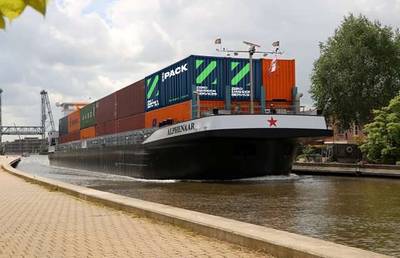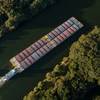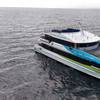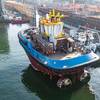Partners to Trial Emissions-free Barging Concept in the Netherlands
A group of partners in Europe aims to use battery containers on board barges to supply environmentally friendly fully-electric propulsion in lieu of diesel for inland waterway shipping.
Supported by the Dutch Ministry of Infrastructure and Water Management, the concept is being spearheaded by the Zero Emission Services B.V. (ZES), a consortium including technology group Wärtsilä, ING Bank, energy and technical service provider Engie and the Port of Rotterdam Authority.
The project will launch first in the Netherlands, where inland navigation accounts for 5% of carbon dioxide (CO2) emissions. Initially, the replaceable battery containers, called ZESPacks, will be used on converted and newly-built container carriers employed along the Zoeterwoude – Alpherium – Moerdijk corridor. Beer company Heineken has already signed on to be the first end customer for the enterprise, utilizing the service to transport beer from its brewery in Zoeterwoude to Moerdijk. Later, ZES aims to expand the use of ZESPacks to include the Amsterdam – Rotterdam – Antwerp corridor, making a connection to Nijmegen.
The interchangeable ZESPacks will be charged using energy from renewable sources across a network of open access charging points set up for exchanging depleted battery containers for ready-charged replacements. The battery packs are even designed to be used for multiple applications, enabling them to be utilized for temporary onshore use, such as stabilizing the local electricity grid or meeting short-term demand for electrical power, ZES says.
To make it easier for barge operators to sign-on to the concept, a ‘pay-per-use’ financing model has been developed. In this way, ZES charges only for the cost of consumed renewable energy plus a rental fee for the battery container, so the skipper’s operating costs remain competitive. However, vessels must be equipped with an electric propulsion line.
The partners note that the system is future-proof since it is independent of the energy provider. While batteries will be employed to start, containers equipped with another power source option such as hydrogen, for example, could be used in the same way should a viable alternative technology come about.















